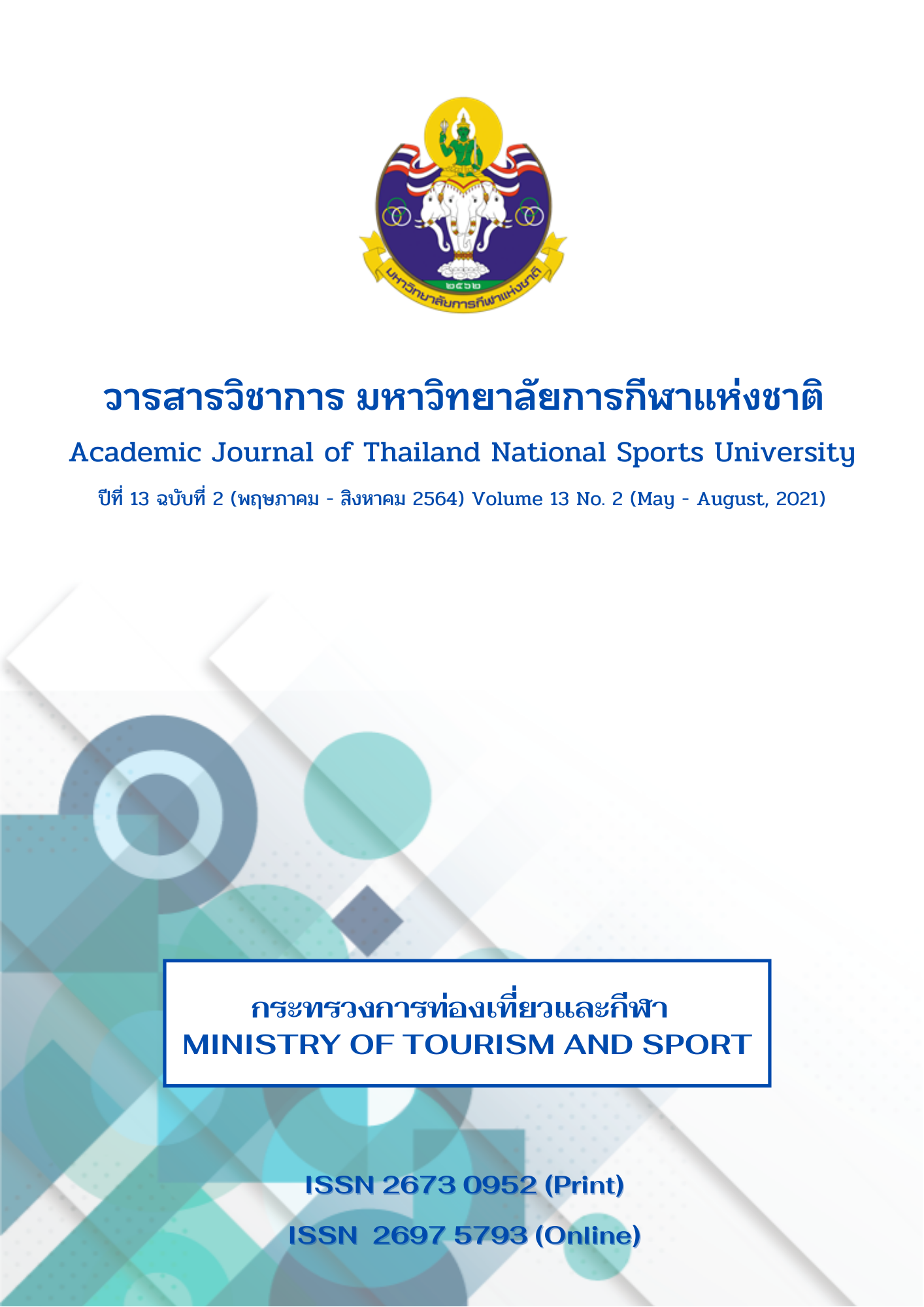DEVELOPMENT OF ACTIVITY PACKAGE TO MODIFY FOOD SAFETY CONSUMPTION BEHAVIOR OF JUNIOR HIGH SCHOOL STUDENTS BASED-ON HEALTH BELIEF MODEL AND ACTIVE LEARNING
Main Article Content
Abstract
Abstract
This research aimed to develop an activity package to modify food safety consumption behaviors of junior high school students based on Health Belief Model and Active Learning concepts. The study consisted of 2 major phrases; a development of an activity package, and accessing the effectiveness of the package. The study samples were 367 secondary 2 students recruited by multistage sampling. They were randomly assign to an experimental and comparison groups. The activity package was used as an experimental instruments in this study. A casual factors of food consumption behavior and food consumption behavior questionnaires were used as instruments to collect the data at before and after implementing the program. Data analysis was made for frequency, percentage, mean, standard deviation and t-test.
The major study results found as follow:
- The activity package to modify junior high school students’ food safety consumption behaviors comprise 6 learning activity plans and 3 student development activity plans. Each plan consisted of 8 components.
- The index of item objective congruence (IOC) relating to content validity of the package components and the package activity ranged from 66 to 1.00.
- After participating in the activity package, students in an experimental group had higher mean scores in causal factors and food safety consumption behavior than before attending the activity package and than those in the comparison group at a .05 statistical significant level.
Keywords
Activity package, Health Belief Model, Active Learning, Food Consumption Behavior
Corresponding Author: Assistance Professor Karuntharat Boonchuaythanasit, Ph.D.
Department of Physical Education, Faculty of Education Kasetsart University
Email: fedujdb@ku.ac.th
Article Details
The published article is a copyright of the Academic Journal of Thailand National Sports University. The passage appeared in each article in this academic journal is a perspective of each author which is not related to the journal. Each author is required to be responsible for all components of his/her own article. If there are any mistakes, each author must be responsible for those mistakes on his/her own.
References
Bell, Maureen, Designing and using a learning package for teaching, Overview. University
of Wollongong Teaching & Learning Journal, 4(1), 1997, 28-32. Retrieved on March
25, 2015. Available at https://ro.uow.edu.au/overview/vol4/iss1/7
Bureau of Policy and strategy, Ministry of Public Health, 2007. Drafting of Thailand Healthy Lifestyle Strategic Plan. Nontaburi.
Faculty of Mass Communication Technology, Rajamangala University of Technology
Thanyaburi. Active Learning KM: Active Learning Handbook. Retrieved on January
25, 2014, Available at http://www.mct.rmutt.ac.th/km/?p=786
Michael JA and Modell HI. (2003). .Active Learning in Secondary and College Science Classrooms: a Working Model of Helping the Learning to Learn. Mahwah, NJ: Erlbaum,
Michael Joel. (2006). Where’s the evidence that active learning works?. Adv Physiol Educ, 30: 159–167, doi:10.1152/advan.00053.2006.
Paranee Ninkron. (2011). Effects of the Program for Behavioral Modification Food Consumption by the Self-Efficacy Theory and Social Support among Students of Primary School Level 5 -6 in BanMor District, Saraburi Province. Master of Public Health thesis. Burapa University.
Rosenstock, I. M. (1974). The health belief model and preventive health behavior. Health Education Monographs, 2(4), 354–386.
Thai Health Foundation. (2014). Appropriate food consumption reduce the Thais’ health problem. Retrieved on February 25, 2015, Available at https://www.thaihealth.or.th/Content/19644
Umaporn Ngammeerit. (2008). Effectiveness of Health Education Program on Snack
Consumption Behavior of Mathayomsuksa 3 Students in Demonstration School
of Ramkhamhaeng University. Master of Science thesis. Kasetsart University.
Weerachai Nolwachai et al. (2015). Food Consumption Behavior of Junior High School Students. Bangkok. Food and Drug Administration. Ministry of Public Health.


